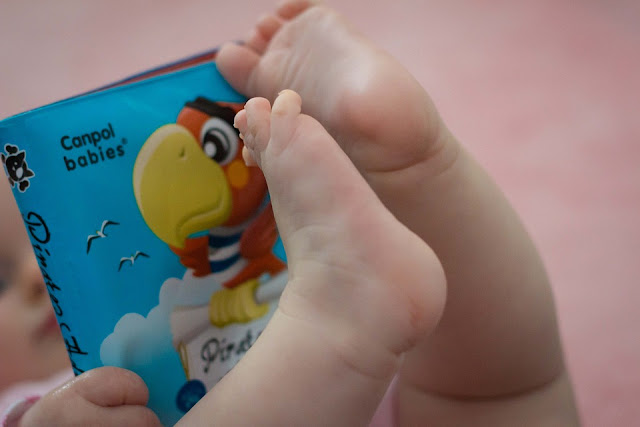Critical thinking skills like problem solving, predicting, and projecting can grow with language, and can impact literacy too! As a child's thinking is encouraged to expand, their language framework expands along with it to support these new ideas and interpretations of the world. These same skills are called to action to understand the meaning of a book - reading between the lines, drawing on experiences, and making inferences enable them to understand things not explicitly written in the text. Learn the E's and P's to easily encourage the development of your child's critical thinking skills.
KidsTalk Wellington provides speech and language services to children in Wellington County. This blog contains resources for parents and professionals seeking resources, current research and best practices in the areas of speech, language and literacy development. www.kidstalkwell.com
Tuesday, 29 March 2016
Saturday, 26 March 2016
Why It's So Difficult to Diagnose Autism in Girls
More and more research about the presentation of autism in girls is continuing to surface, and it is a welcome development. Diagnosing girls is more difficult because on top of the very diverse presentation of any individual with this disorder, it seems that most screening and diagnostic tools have been developed with the observations of boy's behaviours in mind. Research has proposed that perhaps girls are better at camouflaging their symptoms, therefore, making an accurate diagnosis less likely or at the least, more difficult. Find out more about the fascinating investigation researchers are taking on to learn about autism in girls and how we can better diagnose and serve this population.
Tuesday, 22 March 2016
What Makes Your Child "Tick"?
Including a child's interests in every day activities leads to better communication and language outcomes. It motivates them to interact - and for longer, and gives parents more opportunities to promote communication. Discovering your child's interests can be made easy using 3 important components. Physically get on their level, be face-to-face, and wait. Waiting provides the opportunity for you to see what your child is interested in and follow their lead, instead of initiating an activity of your choice. Using your child's interests in daily activities can provide ample opportunity for building communication skills. Find out more from The Hanen Centre HERE.
Saturday, 19 March 2016
Boys vs. Girls - what's the impact?
Even from the time they are in utero, boys are more sensitive to extreme stress than girls. And from there on, it continues. A wide variety of disadvantages - from family income and structure to society's discouragement of sensitivity and vulnerability in boys - affect the performance of boys in the classroom and beyond. Find out more about these factors and their impact - and what we may be able to do about it.
Thursday, 17 March 2016
Literacy-Building Ideas!
Early literacy skills are the tools children use when learning to read and write. Building these skills can be one of the most important ways to prepare your child for school. At a loss for where or how to start? Check out these fun tips for building the critical 5 early literacy skills - oral language, vocabulary, story comprehension, print knowledge, and sound awareness - with just 5 books!
Saturday, 12 March 2016
Early vocabulary delays suggest therapy needs later in life
Joining the ongoing debate, Penn State conducted a study to investigate whether being a late talker is a risk factor for later development. Sample vocabulary of two year olds and reading and math assessments at age 4 and 5 were used to analyze the predictability of those with a limited vocabulary requiring future intervention services. Read more about the study, it's findings, and the recommendations made by the professors involved.
Penn State: Early vocabulary delays suggest therapy needs later in life
Tuesday, 8 March 2016
"Tuning In' and Developing Theory of Mind
Theory of mind - that is, the understanding that people don't share the same thoughts and feelings as you do - develops during childhood. There are a number of skills that must be acquired to later develop this theory of mind. Find out how typical children develop theory of mind, what problems may arise, and how to help your child 'tune in'.
Saturday, 5 March 2016
Responding To Baby Babbles During Book Reading May Be Key To Language Development
New research published by Language Learning and Development studied the interactions of mothers and their infants during various types of play. By considering and coding the babies' vocalizations and the mothers' responses, they concluded that responding to your baby's coos and babbles during book reading may be the key to language development. To find out more, check out the full story
Tuesday, 1 March 2016
Key Skills for Developing Communication in Children with Autism
Each child with autism is unique, and therefore, so is their development of communication skills. Despite so much variability in development and learning, research has found that children that have stronger abilities with a specific handful of skills - joint attention, imitation, and toy play - will have better communication skills as older children.
Find out how these integral skills are connected to communication, and how to help your child develop these skills.
Subscribe to:
Comments (Atom)








